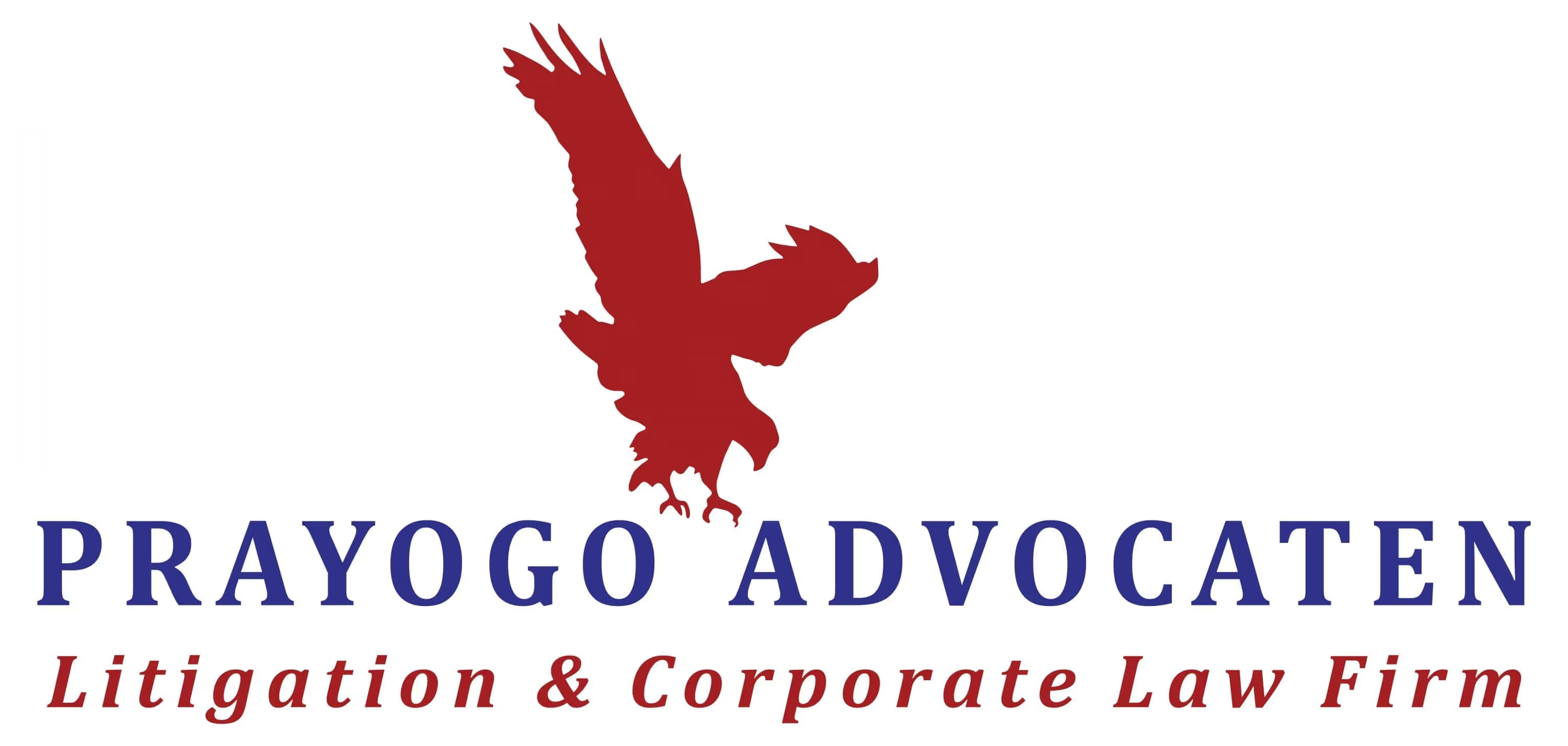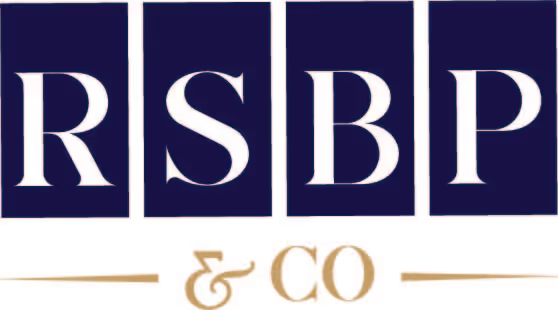Debt Collection Agency in Indonesia - No Win, No Fee
Your claims are handled exclusively by REX Advisor, our PERADI-licensed law firm (penagihan utang) with 20+ years combined experience.

Why Choose Debitura for Debt Collection in Indonesia

Fast, simple and risk-free debt collection in Indonesia
Debitura connects you with REX Advisor, a Jakarta-based law firm with 4 PERADI-licensed partners and over 20 years combined experience from top-tier international firms. Certified Fraud Examiner (CFE) and AKPI member on the team.
- Risk-free: Pay only when we recover your money.
- Quick setup: Submit invoices in a few clicks.
- Real-time tracking: Monitor progress live in one portal.
- Local expertise: PERADI-licensed Indonesian attorneys handle everything.

Getting started with debt collection in Indonesia
- Upload your claim: Submit your invoice and debtor details through Debitura's secure dashboard in just 2 minutes.
- REX Advisor takes action: Our Indonesian partner begins amicable collection (penagihan secara kekeluargaan), sending formal demand letters (somasi) under Indonesian Civil Code.
- Track and recover: Follow real-time updates in your dashboard. You pay only when funds are recovered.
Already using an ERP or accounting system? Connect via API or use our one-click integrations to sync claims automatically.


Clear and competitive pricing - No Win, No Fee
Debitura operates on a success-based pricing model. You only pay when your money is recovered - no upfront fees, no subscriptions, no hidden charges.
- No platform fees: Using Debitura's dashboard, APIs, and integrations is completely free.
- Success-based fees: Pay a percentage of recovered funds only when collection succeeds.
- Transparent quotes for legal action: If court proceedings are needed, receive up to 3 fixed-price quotes from vetted firms.
- Local invoicing: REX Advisor invoices in IDR after successful recovery.

Fast, simple and risk-free debt collection in Indonesia
Debitura connects you with REX Advisor, a Jakarta-based law firm with 4 PERADI-licensed partners and over 20 years combined experience from top-tier international firms. Certified Fraud Examiner (CFE) and AKPI member on the team.
- Risk-free: Pay only when we recover your money.
- Quick setup: Submit invoices in a few clicks.
- Real-time tracking: Monitor progress live in one portal.
- Local expertise: PERADI-licensed Indonesian attorneys handle everything.
The ultimate guide about debt collection in Indonesia (2026 Version)
Why you can trust this guide
At Debitura, we uphold the highest standards of impartiality and precision to bring you comprehensive guides on international debt collection. Our editorial team boasts over a decade of specialized experience in this domain.
Questions or feedback? Email us at contact@debitura.com — we update this guide based on your input.
Debitura By the Numbers:
- 10+ years focused on international debt collection
- 100+ local attorneys in our partner network
- $100M+ recovered for clients in the last 18 months
- 4.9/5 average rating from 621 reviews
Expert-led, locally validated
Written by Robin Tam (16 years in global B2B debt recovery). Every page is reviewed by top local attorneys to ensure legal accuracy and practical steps you can use.
Contributing local experts:
Last updated:
Embark on your debt collection journey in Indonesia with Debitura as your guide. Armed with local expertise and international experience, we simplify the process. Use this guide to overcome debt recovery challenges in Indonesia efficiently and effectively.
Navigating Indonesia's Debt Recovery Landscape: Key Performers
Grasping the complex structure of Indonesia's debt recovery ecosystem is imperative. This involves knowing the crucial roles and obligations of key players such as debt collection agencies, bailiffs, and lawyers. Each contributes significantly to the arduous task of debt recovery within Indonesia's strict legal parameters.
Debt Collection Agencies in Indonesia
In Indonesia, debt collection agencies, or "agen penagihan utang", play a pivotal role in the financial ecosystem by aiding creditors in the recovery of outstanding debts. Entities typically resort to these agencies when internal collection efforts fail, leveraging the agencies' specialized strategies to optimize recovery rates. These agencies perform a variety of tasks, including debtor communication, negotiation of payment plans, and, if necessary, initiation of pre-legal actions to secure debt repayment. However, their operations are tightly regulated under Indonesian law, emphasizing ethical practices to protect debtors' rights and dignity. Guidelines from the Financial Services Authority (OJK) and other relevant regulations stipulate clear boundaries for their activities—prohibiting the use of intimidation, invasion of privacy, or any forms of harassment. This regulatory framework ensures that collection efforts are conducted professionally and respectfully, balancing the interests of creditors with the protection of consumer rights.
Debt Collection Lawyers in Indonesia
In Indonesia, navigating through the maze of debt collection can be intricate, often requiring the expertise of a debt collection lawyer. These legal professionals play a pivotal role in mediating and resolving disputes that arise from the debt collection process, serving both creditors and debtors. When direct negotiations falter, and complex legal issues emerge, it's time to involve a lawyer specialized in debt collection.
Debt collection lawyers are not only adept at understanding the legal landscape surrounding debts but also excel in filing legal actions against defaulting debtors. Their tasks extend to representing their clients in court, facilitating mediation and negotiation processes, and ensuring an amicable settlement is reached. However, it's crucial to note that their activities are bound by the legal framework, particularly the Indonesian Civil Code, which outlines the boundaries within which they operate.
Before involving a lawyer, creditors should exhaust all preliminary recovery efforts, including direct communication and negotiation with the debtor. The intervention of a lawyer is a significant step, symbolizing a shift towards formal legal proceedings. Choosing this path mandates a thorough consideration of existing regulations and an understanding of the limitations to the activities that debt collection lawyers can undertake in Indonesia.
The Role of Bailiffs in Indonesia
In the sphere of debt collection in Indonesia, "Juru Sita", or court bailiffs, play an essential role particularly when it comes to enforcing judicial decisions related to debt recovery. Unlike debt collectors who handle the pre-legal collection process, bailiffs step in when a court order is in place, ensuring the law's involvement in debt recovery.
A bailiff's involvement is required when a debtor fails to comply with tax obligations or ignores preliminary notices. Their role extends to scenarios indicating a debtor’s intention to relocate assets or evade payments, such as attempting to leave the country or transferring assets deceitfully. The tasks performed by bailiffs include notifying debtors about forced collection letters, executing asset seizures, and conducting auctions of seized goods to satisfy debts, making them pivotal in the judicial collection phase.
Laws governing bailiffs, particularly Law No. 19 of 2000 concerning Tax Collection with Forced Letters, underline their right to execute immediate collection actions, issue forced letters, and oversee the auctioning of seized assets to recover outstanding debts.
However, the scope of a bailiff's duties is strictly regulated, focusing exclusively on the enforcement of debt collection and asset seizure. Creditors must first pursue all preliminary legal steps, including obtaining a court order, before involving a bailiff in the debt collection process, ensuring a methodical and lawful approach to debt recovery in Indonesia.
Source: Indonesian Law No. 19 of 2000
Understanding Indonesia's Legal Framework for Debt Collection
Navigating Indonesia's debt collection laws can be daunting. Ensuring legal compliance aids in efficient debt recovery, while promoting fair practices that instill trust and uphold business integrity. This knowledge is crucial to business operations within the Indonesian market.
The Civil Court System in Indonesia
A cornerstone of the Indonesian legal landscape, the civil court system is organized into a structured hierarchy, ensuring justice through an orderly process.
- District Courts (Pengadilan Negeri): The first level in the hierarchy, handling civil cases at the first instance.
- High Courts (Pengadilan Tinggi): Act as appellate courts for appeals against decisions of the District Courts.
- Supreme Court (Mahkamah Agung): The highest level in the Indonesian judicial system, handling cassation (further appeal) from the High Courts.
It's essential for parties involved in civil disputes, including debt recovery, to understand this hierarchical structure as it dictates the legal avenues and recourse available at different stages of litigation. Each tier plays a critical role in ensuring justice is served, from the initial hearing at the District Courts to the final appeal in the Supreme Court. For international creditors, entering this system may seem daunting; however, with the right guidance and understanding of the hierarchical nature, navigation becomes smoother, facilitating successful debt recovery endeavours in Indonesia.
Key Debt Collection Laws and Legislation in Indonesia
Indonesia's legal framework surrounding debt collection is extensive and multifaceted, covering various aspects from consumer protection to bankruptcy.
- Indonesian Civil Code: Outlines the general provisions on debt collection, including the rights and obligations of both debtor and creditor.
- Law No. 8 of 1999 on Consumer Protection: Provides guidelines to protect consumers, including debtors, ensuring fair treatment and protecting their privacy.
- Electronic Information and Transactions Law (UU ITE): Regulates electronic communications, important for modern debt collection practices, and penalizes online harassment or defamation.
- Law No. 37 of 2004 on Bankruptcy and Suspension of Payment: Governs the insolvency process, providing a legal framework for debt recovery in cases of debtor insolvency.
- Regulations by the Financial Services Authority (OJK): Offers specific guidelines for financial institutions on ethical debt collection practices, including the use of third-party agencies.
- Indonesian Criminal Code (KUHP): Imposes criminal penalties for misconduct by debt collectors, such as intimidation or violence.
- Financial Services Authority Regulations (POJK): Several POJK regulations outline the conduct of fintech-based lenders, financing companies, and their debt collection methods.
In addition to these laws, it's essential to be aware of recent changes and updates in legislation, as the Indonesian legal landscape continually evolves. Debt collectors and creditors operating in Indonesia must adhere to these laws to avoid legal implications and ensure ethical practices. Understanding and compliance with the law not only protect the rights of debtors but also foster a fair and efficient debt recovery process. For the most current and comprehensive guidance, consulting with legal professionals and regularly reviewing updates from the OJK and Bank Indonesia are advisable strategies.
Consumer Protection and Fair Debt Collection Practices in Indonesia
Indonesia's approach to debt collection emphasizes the balance between creditors' rights and safeguarding debtor's dignity and privacy. Here's how Indonesian regulations protect consumers from unfair debt collection practices.
- Consumers are ensured respect and dignity in all collection activities, preventing harassment or abuse.
- Debt collectors must respect privacy, avoiding disclosure of debt information to unauthorized third parties.
- The right to clear and accurate information about the debt, including details on the owed amount and the creditor.
- Verification of debt is allowed if a debtor questions its legitimacy.
- Restrictions on communication hours, with collection practices typically permitted between 8:00 AM and 9:00 PM.
- Prohibition of threats, violence, and other forms of intimidation in debt collection.
- Consumers have various avenues for recourse, including reporting to the OJK, Bank Indonesia, or taking legal action against abusive practices.
In conclusion, Indonesia's legal framework for debt collection is designed to protect consumers by ensuring fair, respectful, and ethical collection practices. Even though regulations are strict, it's important for consumers to be aware of their rights and for debt collectors to strictly adhere to these practices to avoid legal consequences. Ongoing regulatory updates and adherence to ethical standards are crucial for maintaining the balance between creditors’ recovery efforts and protecting consumer rights in Indonesia.
Amicable Debt Collection in Indonesia
An overview of pre-legal, or amicable, debt collection in Indonesia, where agencies strive to reconcile debts without resorting to court. This streamlined, less convoluted method serves to expedite the process efficiently. Explore the sequence, tactics, and vital aspects to navigate this system effectively.
- Legal Framework: Governed by the Indonesian Civil Code, focusing on negotiations and agreements.
- Statute of Limitations: Set at five years for most debt collection claims, with specific actions able to reset this period.
- Interest and Fees: Must align with ethical guidelines, avoiding usury or unfair practices despite lack of explicit caps.
- Essential Documents: Clear contractual agreements and proof of debt are critical for supporting the creditor's claim.
- Costs: Generally less expensive than litigation, including potential interest or agency fees.
- Timeline: Varies based on various factors but is typically faster than judicial proceedings.
- Preferability: Advisable for preserving relationships or when costs of legal action are unjustifiable.
- Transition to Judicial Recovery: Recommended if amicable efforts fail or the statute of limitations is near.
- Communication Guidelines: Requires ethical, respectful communication within stipulated hours to avoid undue disturbance.
- Rights and Obligations: Clear, consensual repayment agreements are vital, with respect for both parties' rights.
Navigating Out-of-Court Debt Collection in Indonesia
Out-of-court debt collection emphasizes a strategy centered on relationships to recuperate owed amounts, focusing on understanding and negotiation rather than dispute. This approach seeks to keep a constructive connection between the creditor and debtor, aiming for agreements that acknowledge the debtor's circumstances while ensuring the creditor's retrieval of funds. It adopts a cooperative stance, ideal for undisputed claims, sidestepping the intricacies and expenses associated with legal proceedings.
We advise beginning with out-of-court debt collection for straightforward claims not entangled in legal complexities.
The Crucial Role of Collection Agencies in Out-of-Court Recovery in Indonesia
In the context of out-of-court recovery, collection agencies play a crucial role, especially when creditors are short on time or lack the necessary expertise for effective debt recovery. Firms such as Debitura provide targeted services, commencing with accurate debt and debtor identification, and proceeding with engagement through reminders or official communications. Their neutral perspective, free from emotional involvement, often results in more effective debt resolution, offering fair, professional arbitration.
Benefits of Out-of-Court Debt Settlement
Choosing out-of-court settlement is advantageous for both sides; creditors avoid the expenses associated with legal proceedings and maintain important business relationships thanks to the process's respectful approach. Debtors benefit from more feasible repayment options, alleviating financial pressure and promoting goodwill towards the creditor. This method highlights mutual respect and empathy, fostering an environment conducive to meeting financial commitments.
Shifting from Out-of-Court to Legal Debt Collection
Although out-of-court collection presents numerous advantages, certain conditions may warrant the consideration of legal action. Indicators for transitioning towards legal collection include lack of communication, continuous failure to honor commitments, or intentional avoidance by the debtor. Opting for legal recourse should be a well-thought-out final option, due to the considerable costs and duration associated with legal actions, and is generally considered after out-of-court remedies have been fully explored.
Legal Debt Recovery Process in Indonesia
The journey towards reclaiming a debt can sometimes lead to the judicial stage, also referred to as legal debt collection. This involves securing a court order, facilitated by bailiffs, to enforce debt recovery. While small claims may not require it, legal aid is generally required. This piece provides an in-depth look at Indonesia's unique judicial debt recovery process.
- Commercial Courts Venue: Specialized commercial courts in Indonesia handle debt recovery, bankruptcy, and PKPU cases.
- COVID-19 Impact: The pandemic led to a surge in bankruptcy and PKPU cases, reflecting economic challenges for businesses.
- Legal Amendments Call: Increased filings prompted a push for a moratorium and amendments to balance creditor and debtor rights.
- High Legal Costs: Legal debt collection in Indonesia is costly, with expenses often exceeding the claim amount.
- Regulatory Framework for Collectors: Debt collection agencies operate under strict regulations to ensure ethical practices.
- Court Order Process: Securing a court order for unpaid debts involves a lawsuit and court proceedings.
- Small Claims Court: Offers a simplified legal mechanism for disputes with small material claims up to IDR 500 million.
- Variable Legal Timeframe: The duration for debt collection through legal means varies, influenced by several factors.
- Ethical Debt Collection: Collectors must adhere to guidelines that respect debtors' dignity and privacy.
- Legal Costs Recovery Challenges: Clarity is needed on how creditors can recover legal costs from debtors.
Shifting from Amicable to Judicial Debt Collection in Indonesia
In the realm of debt collection in Indonesia, two primary methodologies exist - amicable and judicial debt collection. The amicable approach emphasizes negotiation and mutual agreement for debt repayment, usually without involving the legal system. Conversely, judicial debt collection involves the intervention of the legal system to resolve debt disputes and enforce debt recovery through formal judgments. The transition from amicable to judicial methods typically occurs when disputes arise that cannot be settled amicably, or when the debtor refuses to fulfill their debt obligations. In such cases, the creditor may seek to obtain a formal court order to enforce the debt payment. Securing legal counsel or representation becomes crucial in navigating the complexities of the judicial debt recovery process, emphasizing the importance of professional assistance underpinned by a deep understanding of Indonesian law and judicial procedures.
The importance of a Formal Judgment in Indonesia
A court order is a judicial decision that mandates certain actions be taken by the parties involved, including the repayment of debts. It is a crucial tool for creditors in Indonesia for enforcing debt recovery, legally compelling the debtor to fulfill their obligations. To obtain a court order for unpaid debts, one must initiate a lawsuit through the legal process—a structured sequence that involves submitting documentation, presenting evidence, and possibly appealing decisions if necessary. The court's formal judgment not only provides a legal basis for enforcing debt collection but also offers a means to ensure that the outcome of the debt collection effort carries the weight and backing of the legal system.
Determining the Appropriate Court in Indonesia
In Indonesia, selecting the right court for a debt collection case requires consideration of various factors such as the claim size and case complexity. Small Claims Courts (Pengadilan Klaim Kecil) offer a simplified and cost-effective avenue for disputes involving smaller material claims, with the threshold for such claims being capped at IDR 500 million as per the most recent regulations. For larger, more complex cases, or those involving bankruptcy and suspension of debt payment obligations (PKPU), the claim must be escalated to the commercial courts (Pengadilan Niaga), specialized branches designed to handle commercial disputes, including significant debt recovery cases. Understanding the criteria and selecting the appropriate court is crucial for ensuring the efficient and effective resolution of debt collection cases in Indonesia.
Small Claims Court in Indonesia
The Small Claims Court in Indonesia represents a progressive judicial initiative aiming to simplify the resolution of disputes involving small claims. Envisioned as a "People's Court," it provides a swift, simple, and cost-effective mechanism for the general public to resolve disputes without embroiling themselves in the complexities and expenses of the conventional court system. This initiative aligns with international best practices, aiming to enhance access to justice and ensure fair and efficient dispute resolution.
One of the most compelling advantages of the Small Claims Court is its streamlined procedure designed for quick resolution. Cases in these courts are typically resolved within a remarkably short period, providing a quick remedy to parties and reducing the backlog of cases plaguing the regular courts. Furthermore, the simplified process reduces legal costs significantly, making it accessible to a broader section of the population. This approach underscores the principle that justice should be accessible to all, regardless of their financial standing.
However, the Small Claims Court does have its limitations. Originally, cases qualified as small claims if the material value of the claim did not exceed IDR 200 million, based on the World Bank’s criteria for the ease of doing business index. This limit was later increased to IDR 500 million to account for increased micro and medium-scale contract values. The specific monetary cap means that not all disputes can be resolved via this mechanism, and claims exceeding the set limit must proceed through the regular courts, following the more lengthy and costly process.
The Small Claims Court operates under a comprehensive legal framework, governed initially by Supreme Court Regulation (Perma) No. 2 of 2015. To address the evolving needs, this framework was later updated through Perma No. 14 of 2016 for Religious Civil matters and Perma No. 4 of 2019 for General Civil matters. These regulations underscore the court's adaptability and commitment to providing a viable alternative for dispute resolution. The implementation of these simplified (short) procedures emphasizes the agreement of the parties involved, offering a legally binding resolution that retains the rigor and enforceability of traditional court rulings.
Despite its limitations, the Small Claims Court in Indonesia marks a significant step towards democratizing access to justice, especially for small-scale disputes. By offering a faster, less expensive, and simpler alternative to traditional litigation, it empowers individuals and small businesses to seek redress for grievances without the daunting prospect of a lengthy and expensive court battle. In doing so, it not only serves the immediate needs of disputants but also reflects a broader commitment to enhancing the rule of law and access to justice for all Indonesians.
Ordinary Proceedings in Indonesia
In Indonesia, ordinary proceedings represent a conventional judicial approach towards resolving complex legal disputes, including those related to debt collections that exceed the jurisdiction of the Small Claims Court. This pathway is especially vital when dealing with substantial claims or when specific legal arguments must be thoroughly examined. Based on Debitura's decade of experience in handling debt recovery in Indonesia, we provide an insightful overview of ordinary proceedings, highlighting its significant advantages, requirements, and governing laws.
One of the main advantages of ordinary proceedings over the Small Claims Court is the capacity to handle disputes of any value, making it an essential option for substantial claims. Ordinary proceedings allow for a more in-depth examination of the case, where procedural and substantive issues are meticulously analyzed. Unlike the Small Claims Court, which prioritizes speed and cost-efficiency, ordinary proceedings provide a platform for presenting detailed evidence and legal arguments, thus offering a comprehensive judicial examination of complex legal matters.
Another significant aspect of ordinary proceedings is the requirement for legal representation. While individuals can represent themselves in the Small Claims Court, ordinary proceedings often require the expertise of legal professionals due to their complexity. This necessitates the involvement of advocates (lawyers) who can navigate the intricate legal frameworks and advocate effectively on behalf of their clients. The presence of experienced legal representation is crucial in ensuring that the parties’ interests are adequately advocated and the best possible outcomes are achieved.
The framework governing ordinary proceedings is chiefly embedded in the Indonesian Civil Procedure Law (Herzien Inlandsch Reglement – HIR) for areas outside the Islamic courts, and the Religious Court Procedure Law (Reglement Op de Rechtsvordering – Rv) for disputes within the Islamic courts. These regulatory frameworks dictate the procedural aspects, starting from the filing of lawsuits, the process of evidence gathering, trial proceedings, up to the issuance and execution of court orders. Additionally, the Commercial Courts have jurisdiction over bankruptcy cases and disputes involving commercial entities, as detailed in the Law No. 37 of 2004 on Bankruptcy and Suspension of Debt Payment Obligations.
Specific regulations, such as the Supreme Court Regulation No. 1 of 2016, further refine the procedural aspects by outlining guidance on court processes, including submission deadlines, evidence presentation, and appeals. Such detailed provisions ensure that ordinary proceedings are conducted within a clear legal framework, promoting fairness and efficiency in the judicial handling of disputes.
In conclusion, ordinary proceedings in Indonesia offer a valuable judicial route for creditors seeking legal redress over disputed debts that fall outside the scope of the Small Claims Court. With the advantage of tackling high-value claims and the requirement for professional legal representation, ordinary proceedings ensure a thorough legal examination under a robust regulatory framework. Debitura's extensive experience in navigating through these proceedings highlights our capacity to manage complex debt recovery cases effectively, ensuring our clients' interests are protected and upheld.
Grasping Debt Enforcement in Indonesia's Legal Framework
Embarking on the judicial debt collection journey in Indonesia equips you with the power for debt enforcement. Proctored by official bailiffs, this process facilitates the seizure of a debtor's assets to satisfy your claim. This guide will illuminate the legal pathways for adeptly enforcing your claim in Indonesia.
- Court Judgment Necessity: Court orders are required for formal debt enforcement proceedings in Indonesia.
- Authorized Enforcers: Bailiffs (juru sita) are officially authorized to enforce debt, requiring legal documentation.
- Bailiff Act and Regulations: Debt enforcement and bailiff activities are governed under Indonesian Civil Procedure Code and specific laws protecting debtor rights.
- Role of Bailiffs: Bailiffs execute court orders, seize assets, and are central to the debt recovery process, with adherence to legal boundaries.
- Financial Considerations for Creditors: Hiring bailiffs incurs costs, but they play a crucial role in ensuring ROI through effective debt recovery.
- Debtor Asset Tracing: Businesses must legally trace debtors and evaluate hidden assets before initiating enforcement to identify recoverable debts.
- Debt Enforcement Timeline: The process typically spans several months, depending on case complexity and judicial efficiency.
- Asset Seizure Framework: Involves detailed legal procedures, ensuring certain types of debtor assets can be seized under court order.
- Salary Attachments: Legal provisions exist for garnishment, emphasizing protections for debtors' basic financial needs.
The Role of Bailiffs in Debt Enforcement
In Indonesia, the enforcement of debt through judicial processes often involves the critical role of bailiffs (juru sita). Their responsibilities extend from notifying debtors about enforcement actions to executing asset seizures and orchestrating the auction of these assets to repay debts. Here are key insights into their role:
- Bailiffs execute forced collection measures for outstanding taxes and other financial dues without a court order, as mandated by Law No. 19 of 1959.
- Their duties include seizing both movable and immovable property of the debtor, conducting auctions of seized assets, and, if necessary, implementing forced detention of taxpayers who fail to meet their tax obligations.
- Forced detention is a serious measure applied under specific conditions, highlighting the severe implications of failing to meet debt obligations in Indonesia.
The Process of Debt Enforcement
Debt enforcement in Indonesia intertwines civil and criminal legal frameworks, highlighting a nuanced approach to debt recovery. From initiating civil suits to engaging in pre-enforcement actions, the process is thorough and multifaceted:
- Loan agreements and breaches of contract are primarily governed by the Indonesian Civil Code (KUHPerdata), necessitating civil suits for breach of contract at District Courts.
- In instances of alleged fraud or embezzlement, criminal charges can be filed, though imprisonment for inability to fulfill debt obligations is prohibited under Article 19(2) of the Human Rights Law No. 39/1999.
- Misuse of law enforcement in debt collection is explicitly prohibited, ensuring protection against unethical debt recovery practices.
Legal Framework for Bailiff Operations and Debt Enforcement
The operational and ethical guidelines of clerks and bailiffs in the debt enforcement process adhere to a strict ethical code, as outlined by the Tembilahan District Court. This ensures professionalism and integrity in their conduct:
- The ethical code aims to maintain the honor, dignity, and self-esteem of clerks and bailiffs, ensuring fair and unbiased service to all parties involved in the judicial process.
- Clerks and bailiffs assist the judiciary in preparing accurate court records, serving the public diligently, and fostering trust in the judicial system.
- Sanctions are recommended by the Honor Council of Clerks and Bailiffs for those who violate the ethical code, emphasizing accountability in their operations.
Pre-Enforcement Actions
Prior to engaging in the formal judicial process of debt enforcement, there are several pre-enforcement actions and strategies that can be utilized. These preliminary steps are crucial for ensuring that all parties are aware of the impending procedures and understand the legal consequences of failing to meet debt obligations:
- Sending a formal warning or demand letter to the debtor, offering a final opportunity to settle the debt willingly.
- Engaging in negotiation or mediation to find an amicable solution that serves the interests of both creditor and debtor.
- Conducting a thorough investigation into the debtor’s assets, to prepare for potential asset seizure or garnishment should legal enforcement become necessary.
Based on our decade of experience, Debitura understands the complexities of the Indonesian debt enforcement landscape. Engaging in these pre-enforcement actions not only complies with Indonesian regulations but also fosters a professional and respectful process for debt recovery.
Reclaim Your Debt through Insolvency Procedures in Indonesia
In the face of debtor insolvency, when traditional methods of enforcement fall short, creditors can often find recourse in initiating insolvency procedures. This last-resort measure allows creditor's claims to be settled from the debtor's assets, structured by priority rights. As a creditor, this method warrants evaluation for its viability, especially when holding high-priority secured debt with considerable coverage anticipated from debtor's assets. It's crucial to act swiftly, should insolvency be triggered by the debtor or another creditor, to register your claim and actively engage in proceedings. In the following section, we unravel the complexities of insolvency procedures in Indonesia, providing an in-depth guide for creditors on the path to debt recovery.
- Utilization for Debt Collection: Bankruptcy as a strategic tool for debt recovery, governed by Law No. 37 of 2004.
- Filing Requirements: Debtors with two or more creditors and at least one unpaid, collectible, matured debt are eligible for bankruptcy.
- Priority Rules: Worker wages, state taxes, secured creditors, in that order, affecting debt recovery chances.
- Costs: Includes court fees (e.g., about Rp5 million outside Jakarta) and attorney fees, beyond civil case charges.
- Timeframe: Court decision on bankruptcy petitions mandated within 60 days from filing.
- Expected Outcomes: Restructuring proposals that may include debt-to-equity conversions, operational adjustments, approval from majority creditors.
- Petition Process: Filing to the Commercial Court by eligible parties, followed by hearing and court evaluation.
- Creditor Rights: Secured versus unsecured creditor privileges, with challenges to claim priority through legal means.
- Post-Bankruptcy Scenarios: Settlement through operational cash flow, restructuring of contracts, creditor involvement in approval processes.
- Required Documentation: Not explicitly detailed but necessary for claims filing in bankruptcy cases.
- Legal Recourse: Opportunities for opposition, appeal, and judicial review post-bankruptcy decision.
- Creditor Role: Active participation in bankruptcy processes, including voting on proposed PKPUs, to protect interests and claims.
The Legal Framework for Insolvency Procedures in Indonesia
Indonesia’s insolvency procedures are primarily governed under Law No. 37 of 2004 on Bankruptcy and Suspension of Debt Payment Obligations. This framework was established to address financial distress within businesses, fostering a structured approach to bankruptcy that balances the interests of debtors and creditors. It also introduces the possibility of suspension of debt payment obligations, providing a lifeline to businesses facing temporary liquidity issues. Importantly, this law has been partially amended by subsequent legislation, including Law No. 4 of 2023, which addresses financial sector stability and recovery.
Types of insolvency proceedings
Indonesia recognizes several insolvency proceedings, including:
- Regular insolvency proceedings (Bankruptcy): Initiated when a business cannot fulfill its debt obligations to two or more creditors, leading to its assets being liquidated to pay off debts.
- Suspension of Debt Payment Obligations (PKPU): Allows companies in distress to negotiate with creditors and restructure debts, aiming to avoid bankruptcy and facilitate business continuity.
- Self-administration and protective shield procedure: Although not directly termed as such in Indonesian law, the concept is similar to PKPU, where the debtor retains control over business operations while attempting to restore financial health under supervisory guidance.
Thresholds and conditions
The essential criteria for initiating insolvency procedures in Indonesia are:
- Failure to pay off at least one matured and collectible debt.
- Having two or more creditors.
- The court decision on a bankruptcy petition must be made within 60 days of its registration.
Cost and timeframe vary depending on the complexity of the case, with a notable high entry threshold due to significant filing fees and legal costs.
Creditor's Rights and Priorities in Insolvency Proceedings
In Indonesian insolvency proceedings, creditors' claims are prioritized as follows:
- Primary Worker Wages and taxes take precedence, ensuring employee and state dues are settled first.
- Secured creditors hold priviliged positions regarding rights over specific collaterals.
- Unsecured creditors come next, with their claims addressed after satisfying secured debts and primary obligations.
Creditors must register their claims within the insolvency table to be considered for repayment, with specifics governed under the appointed curator's administration.
Find a Local Debt Collection Lawyer
Need court-ready representation? Share your case once and receive up to three proposals from vetted litigation attorneys—free, fast, and with no commitment.
- Verified specialists
- Quotes in 24 h, no hidden fees
- Fair, pre-negotiated rates

Debt Recovery Indonesia is a premier law firm in Jakarta Selatan offering effective Debt Collection services in Indonesia, established in 2005, renowned for its flexible fee arrangements and accolades such as The Best Litigation Law Firm 2025, serving over 450 clients nationwide.

PT. Collectius Asset Management is a premier debt recovery agency in Singapore offering effective Debt Collection services in Singapore, renowned for its innovative fintech solutions since 2018, serving seven countries, and recognized by the Malaysia Technology Excellence Awards in 2021 and 2022.

Sarvasuksma Attorneys at Law is a premier law firm in Jakarta Selatan offering effective Debt Collection services in Indonesia, recognized as an ALB Indonesia Firm to Watch 2023 and finalist for Dispute Resolution Boutique Law Firm of the Year 2022, founded in 2021.

Prayogo Advocaten Law Firm is a premier law firm in Jakarta Timur offering effective Debt Collection services in Indonesia, established in 2014, with accolades in maritime law and memberships in PERADI and HKHPM, serving clients in ten countries.

Law Office of Amir Hamzah & Rekan is a premier law firm in Bekasi offering effective Debt Collection services in Indonesia, established in 2017 and recognized for its membership in the Worldwide Independent Lawyers League and Perhimpunan Advokat Indonesia (PERADI).

Lawyerindo Legal and Business Support Center is a premier debt recovery agency in Jakarta Pusat offering effective Debt Collection services in Indonesia, established in 2014 with a transparent operational fee/success fee model, enhancing trust and maximizing recovery outcomes.

Makarim & Taira S. is a premier law firm in Jakarta offering effective Debt Collection services in Indonesia, established in 1980 and recognized with accolades such as the Asialaw Awards 2024, positioning the firm as a trusted partner in debt recovery.

DHP Law Firm is a premier law firm in Jakarta Pusat offering effective Debt Collection services in Indonesia, established in 1995 and recognized among the Top 100 Indonesian Law Firms 2023, with memberships in PERADI and Mitra Hukumonline.

Soengkar & Partners is a premier law firm in Jakarta Selatan offering effective Debt Collection services in Indonesia, positioning the firm as the go-to partner for debt recovery since 1995, with memberships in PERADI, LowPartners, and the Debitura Partner Network.

RSBP & Co. Law Firm is a premier law firm in Jakarta Selatan offering effective Debt Collection services in Indonesia, positioning itself as the go-to partner for debt recovery with a foundation in 2022, award-winning recognition, and esteemed memberships in Peradi, HKHPM, and AKPI.
Rajamada & Partners is a premier law firm in Jakarta offering effective Debt Collection services in Indonesia, recognized by The Legal 500 and Asia Law since 2016, serving Southeast Asian markets and the Americas with tailored, transparent solutions.

Yunaelish & Associates Law Firm is a premier law firm in Denpasar offering effective Debt Collection services in Indonesia, positioning itself as the go-to partner for debt recovery with a foundation in 2017, accolades, and memberships in PERADI and ASAHI.

REX Advisor is a premier law firm in Indonesia offering effective risk-free Debt Collection services. Established in 2019, the firm is the go-to partner for debt recovery, recognized for its accolades and memberships, and serves as an exclusive Debitura partner in Indonesia, providing No Cure No Pay debt collection based on Debitura's risk-free standard terms and pricing.

Legalinfo Lawyers is a premier law firm in Jakarta Selatan offering effective Debt Collection services in Indonesia, positioning itself as the go-to partner for debt recovery since 2025 with a team of experienced attorneys and multiple industry accolades.





.svg)

.webp)
.png)

.png)
.svg)












.svg)

